20180925-oyejide-mw25-collection-001
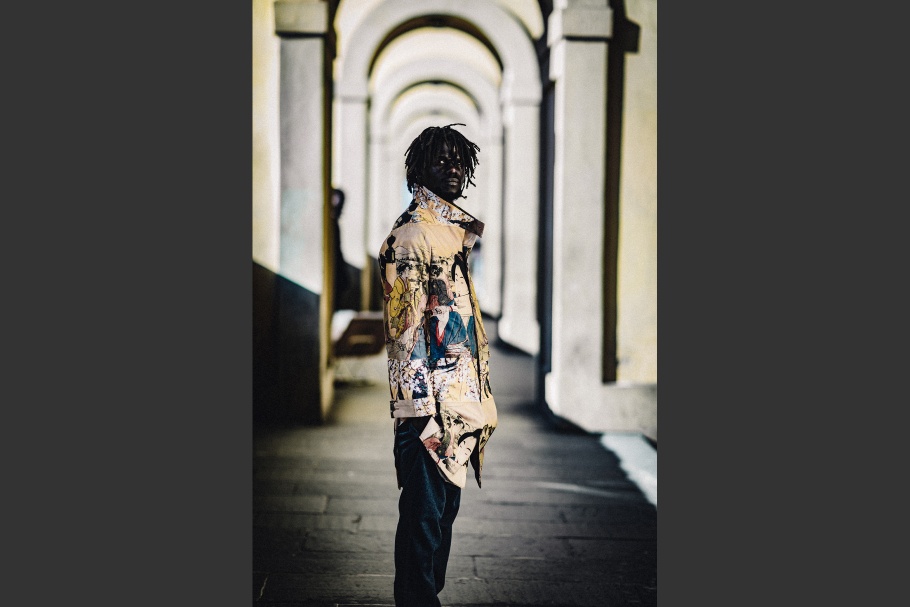
Gitteh B., originally from Guinea.
Florence, Italy, 2016.
Gitteh left Guinea and sought asylum in southern Italy. While standing in a Florentine alleyway, he recounted some of his favorite recipes from home, a way to create a small bridge to connect his past to his present. Gitteh wears an original design from Walé Oyéjidé’s fashion line Ikiré Jones, a socially aware design company that marries West African and European aesthetics and textiles with European silhouettes. Using fashion photography and featuring models who are themselves migrants, he aims to elevate migrants’ stories within visual culture and subvert mainstream media representations.
Creative Director: Walé Oyéjidé
Photographer: Neil Watson
Designer: Ikiré Jones
20180925-oyejide-mw25-collection-002
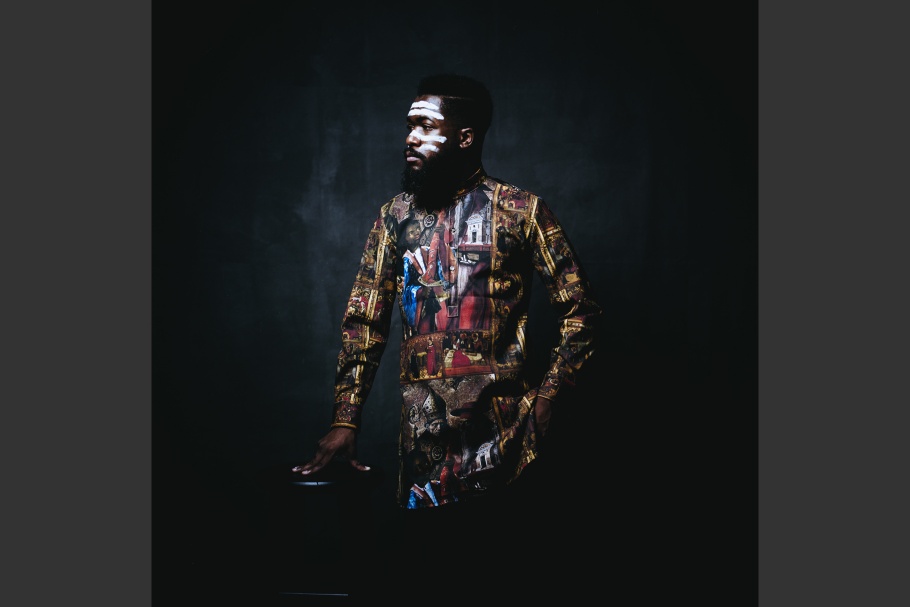
Stephen Obisanya, originally from Nigeria.
New York, United States, 2016.
My parents left Lagos and gave up the dreams they had there. They had been granted a once-in-lifetime opportunity to make a life in America, and passing it up was not an option—even if it meant working 16-hour shifts and splitting up the family without a sense of how possible it would be to eventually reunite. Six years after my parents left for America, I would get to see them again. “Will I recognize them at this point?,” I thought. “Will we be able to pick things up where we’d left them?” All those years they had to endure to make reunion a reality. We are still picking up the pieces from where we left off.
—Stephen Obisanya
Creative Director: Walé Oyéjidé
Photographer: Rog Walker
Designer: Ikiré Jones
20180925-oyejide-mw25-collection-003
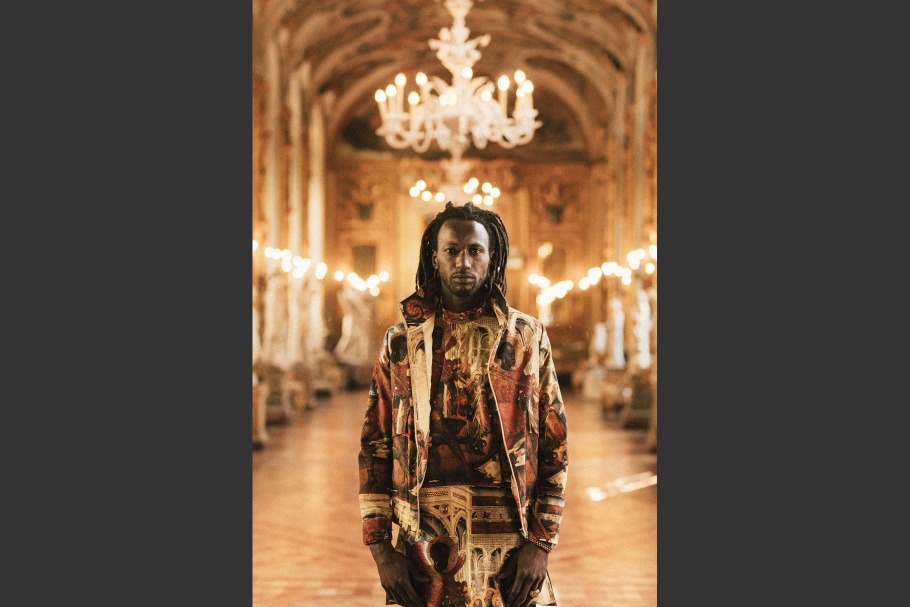
Ousman Pa Manneh, originally from The Gambia.
Rome, Italy, 2018.
While recounting an experience enduring another tedious security search, Ousman looked up ruefully and smiled. “This is the way some of them will always see us,” he remarked. “No matter how beautifully we are dressed, we are considered a threat.”
Creative Director: Walé Oyéjidé
Photographer: Neil Watson
Designer: Ikiré Jones
20180925-oyejide-mw25-collection-004
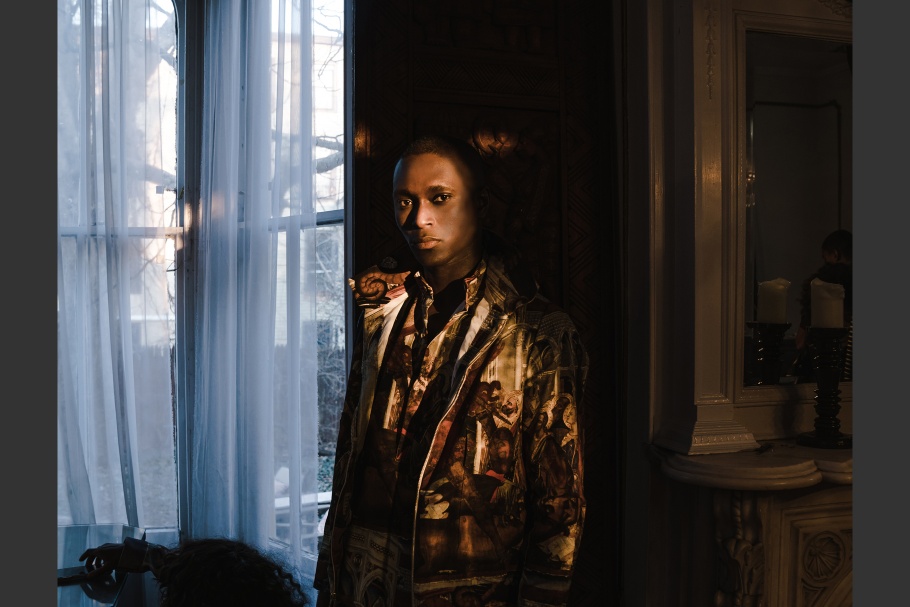
Mohamed Ouedraogo, originally from Cote d’Ivoire.
New York, United States, 2017.
In 1998, Cote d’Ivoire was fighting a civil war. My mother asked my father’s wife if she would bring my brother and me to the United States. Eighteen months later, we arrived at Dulles Airport with a single suitcase, a family photo album, and not knowing when or if we would see our mother again.
—Mohamed Ouedraogo
Creative Director: Walé Oyéjidé
Photographer: Joshua Kissi
Designer: Ikiré Jones
20180925-oyejide-mw25-collection-005
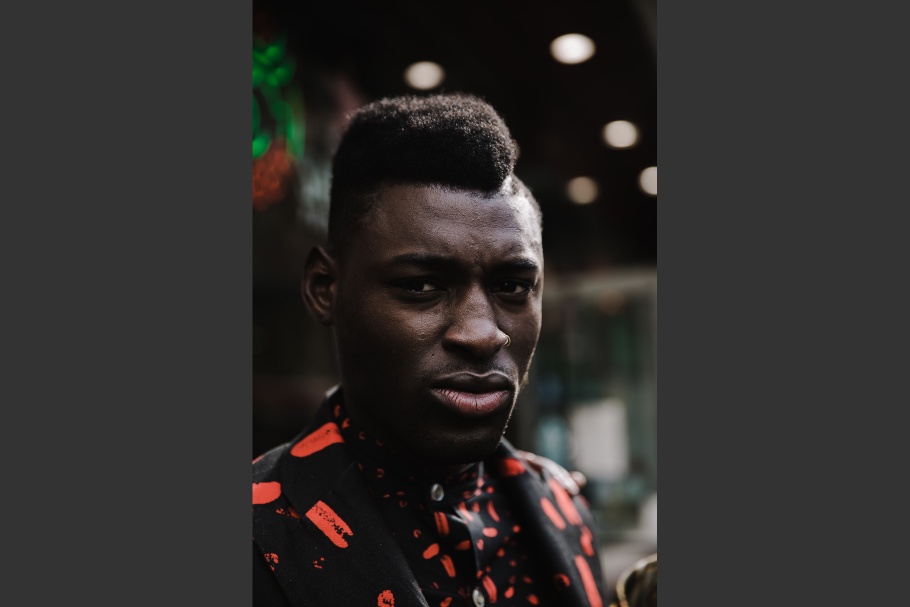
Jason Kusimo, originally from Nigeria.
New York, United States, 2017.
The city of New York is comprised of a varied cultural tapestry. As Jason now attempts to navigate life in the Western world, he strives to balance the heritage of his past with the complexity of his present surroundings.
Creative Director: Walé Oyéjidé
Photographer: Joshua Kissi
Designer: Ikiré Jones
20180925-oyejide-mw25-collection-006
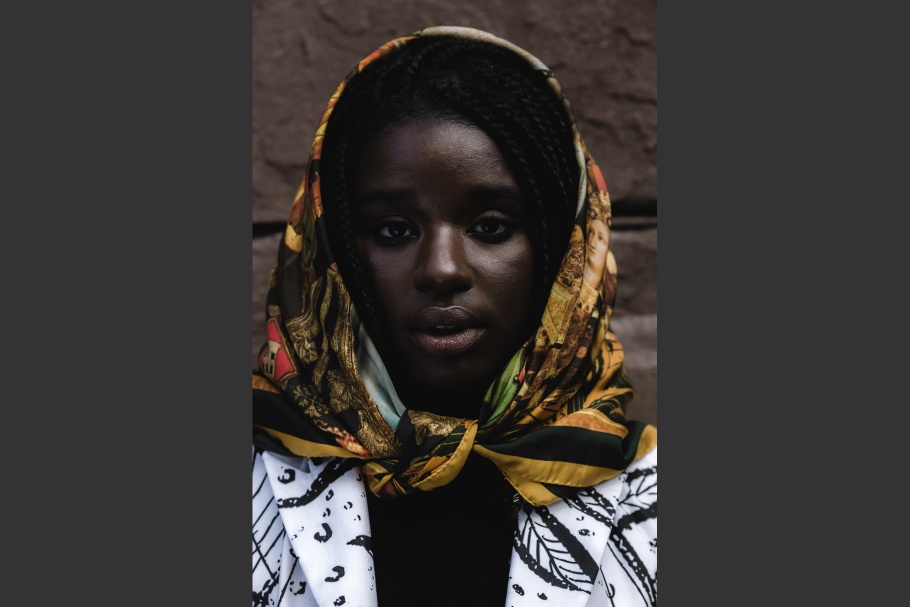
Mominatu Boog, originally from Sierra Leone.
New York, United States, 2017.
As a migrant from Sierra Leone who has crossed different borders before finding a home in the United States, Mominatu strives to assert her cultural identity while also presenting herself as an asset to American society.
Creative Director: Walé Oyéjidé
Photographer: Joshua Kissi
Designer: Ikiré Jones
20180925-oyejide-mw25-collection-007
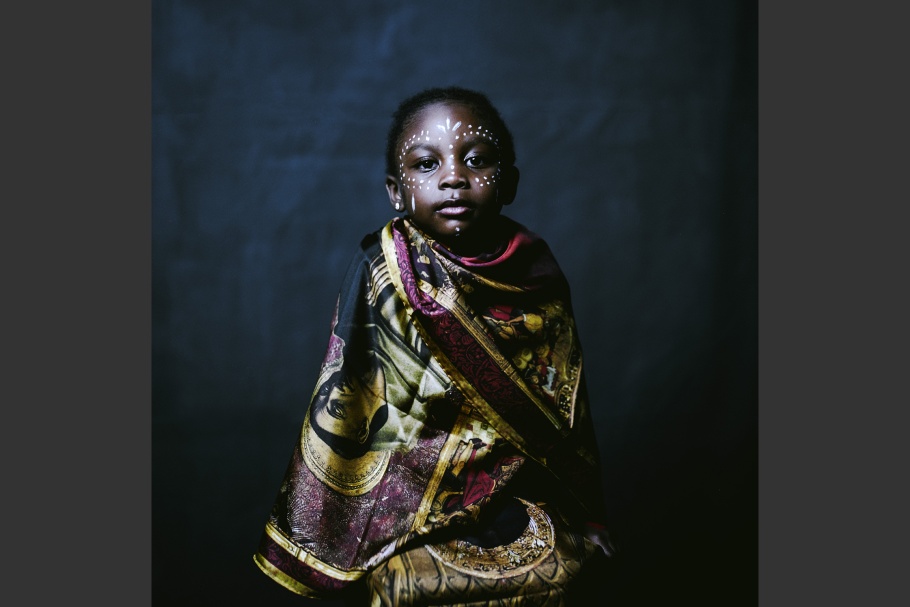
The daughter of a migrant from Ghana is dressed to reflect the home of her parents.
New York, United States, 2016.
Creative Director: Walé Oyéjidé
Photographer: Rog Walker
Designer: Ikiré Jones
20180925-oyejide-mw25-collection-008
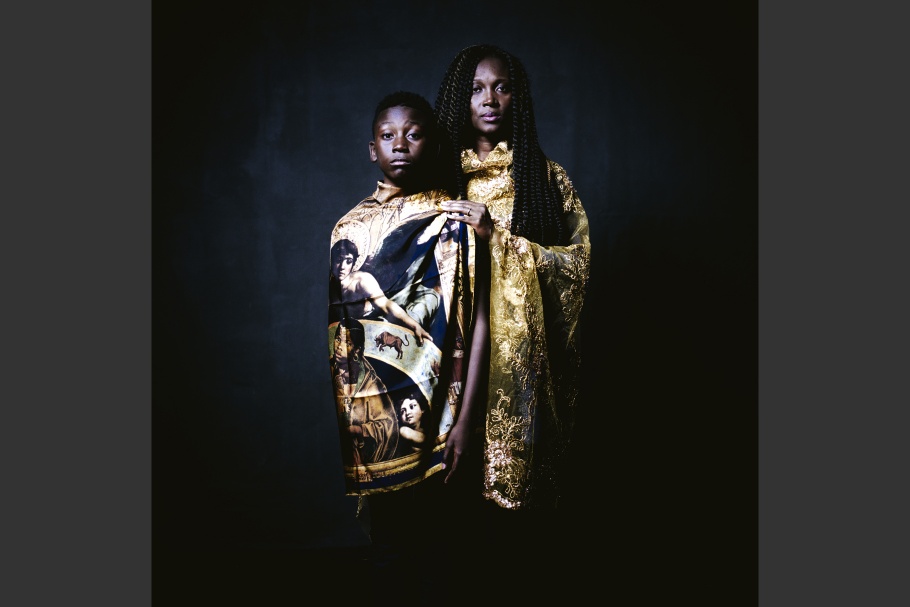
Patricia Kissi-Nvamah and her son Jeremiah, originally from Ghana, reflect on the possibilities that a new life in America will bring them.
New York, United States, 2016.
Creative Director: Walé Oyéjidé
Photographer: Rog Walker
Designer: Ikiré Jones
20180925-oyejide-mw25-collection-009
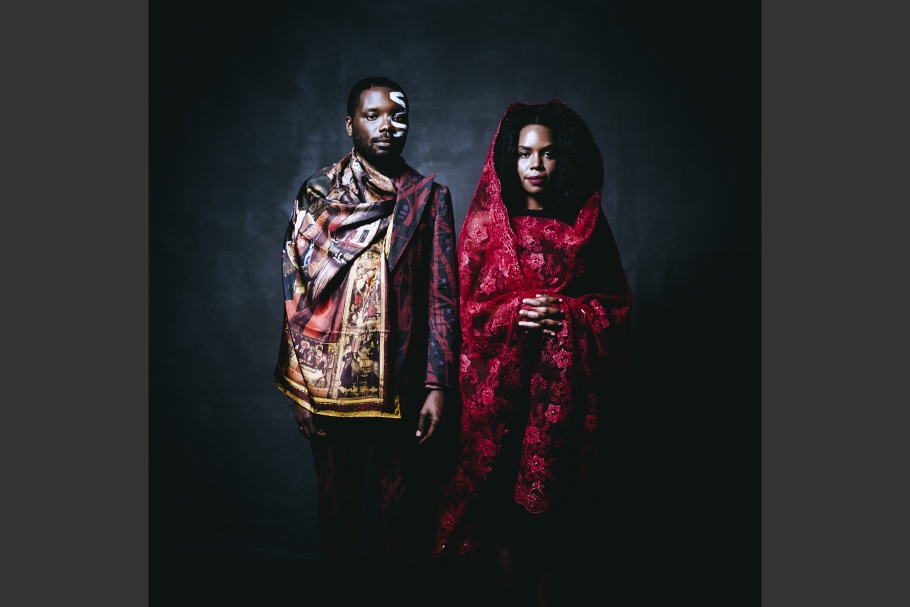
Although James Jean, who is Haitian-American, and Patrice Worthy, who is African-American, have made America their home, the new generation reflects their parents’ storied histories through traditional clothing.
New York, United States, 2016.
Creative Director: Walé Oyéjidé
Photographer: Rog Walker
Designer: Ikiré Jones
20180925-oyejide-mw25-collection-010
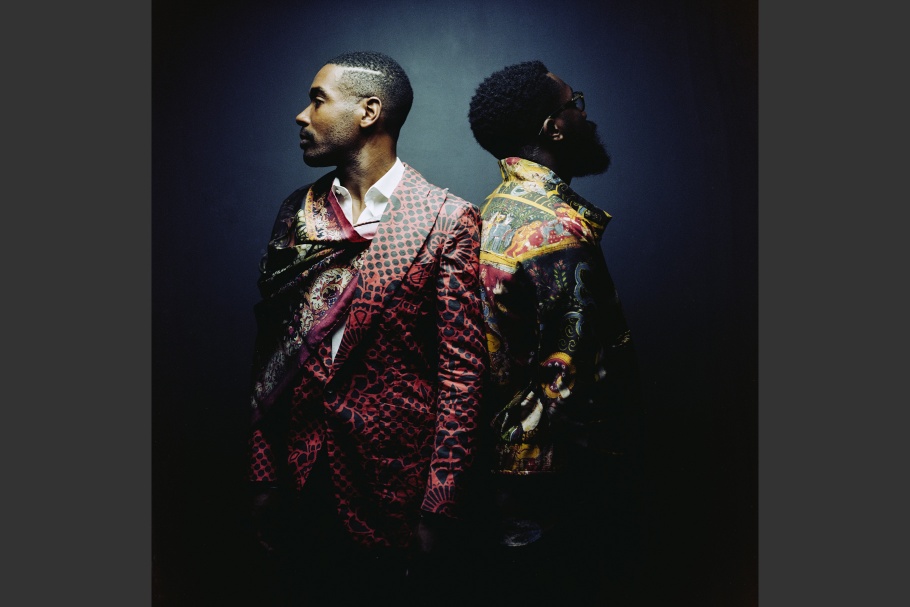
Kamau Hosten, originally from Trinidad, and Stephen Obisanya, originally from Nigeria.
New York, United States, 2015.
Creative Director: Walé Oyéjidé
Photographer: Rog Walker
Designer: Ikiré Jones
20180925-oyejide-mw25-collection-011
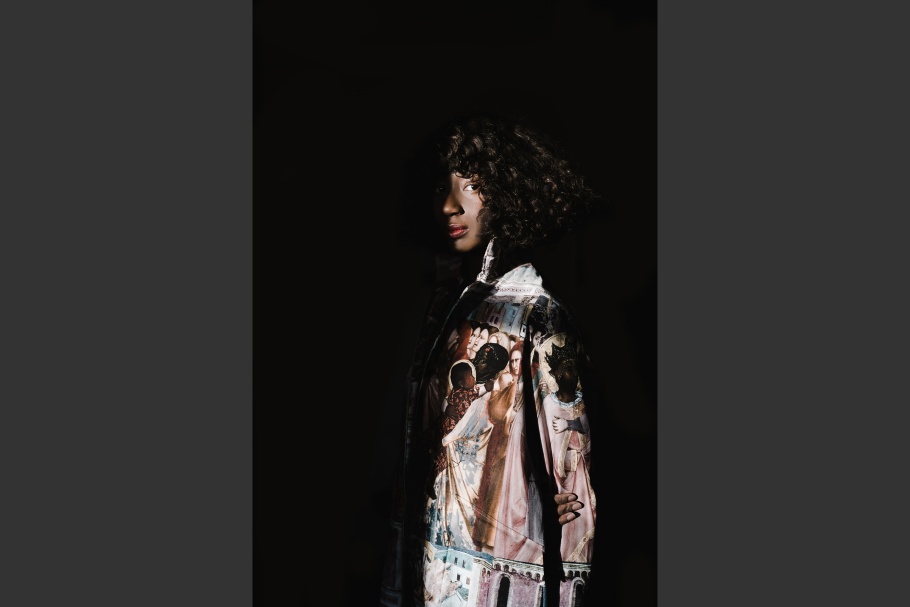
Nana Yaa Sare Boadu’s border crossings have spanned Ghana, the United Kingdom, and the Netherlands.
New York, United States, 2017.
Creative Director: Walé Oyéjidé
Photographer: Joshua Kissi
Designer: Ikiré Jones
20180925-oyejide-mw25-collection-012
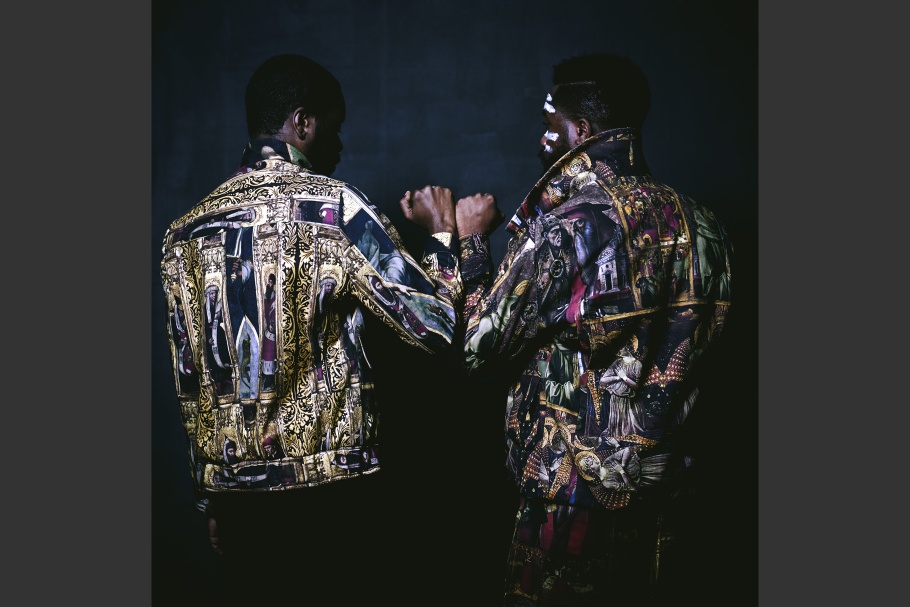
James Jean, Haitian-Ameican, and Stephen Obisanya, originally from Nigeria.
New York, United States, 2016.
Creative Director: Walé Oyéjidé
Photographer: Rog Walker
Designer: Ikiré Jones
20180925-oyejide-mw25-collection-013
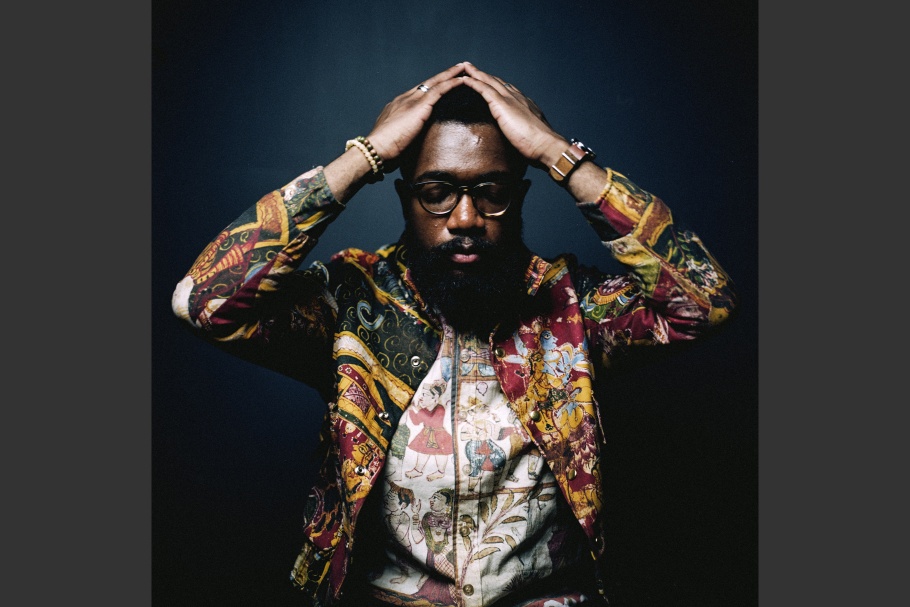
Stephen Obisanya, originally from Nigeria.
New York, United States, 2015.
Creative Director: Walé Oyéjidé
Photographer: Rog Walker
Designer: Ikiré Jones
20180925-oyejide-mw25-collection-014
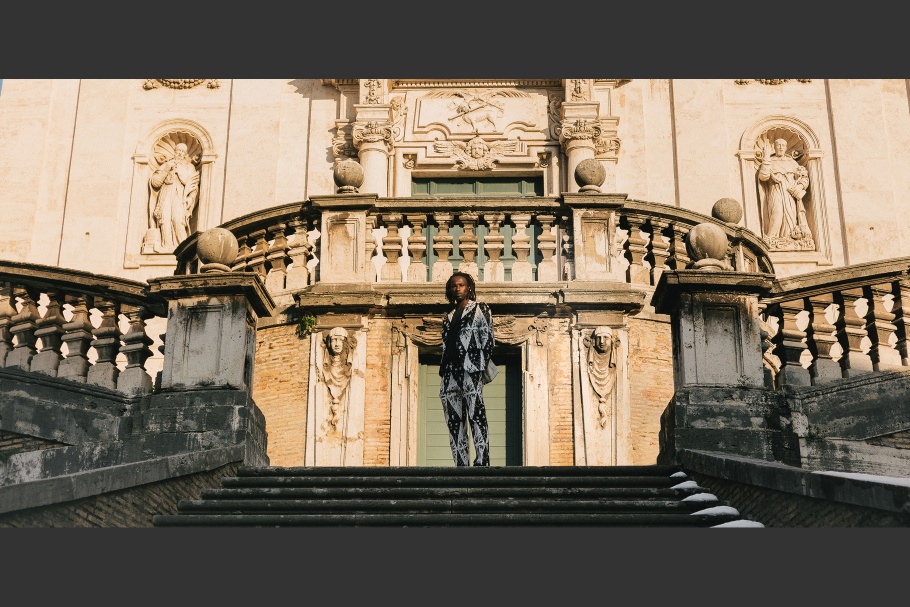
Ousman Pa Manneh, originally from Gambia.
Rome, Italy, 2018.
Creative Director: Walé Oyéjidé
Photographer: Neil Watson
Designer: Ikiré Jones
Walé Oyéjidé (b. 1981, Nigeria; lives in the United States) is a designer, writer, musician, and lawyer who aims to combat bias with creative storytelling.
As the founder of the brand Ikiré Jones, he employs fashion design as a vehicle to celebrate the perspectives of immigrants and other marginalized communities. With the use of fashion photography and prose, his work aims to reframe the lens through which migrants are commonly seen in Western society.
Oyéjidé was a TED Global Fellow in 2017. His designs appeared in the Marvel motion picture Black Panther, and his work and designs have been exhibited in museums across the globe.
Walé Oyéjidé
Since 2000, more than 46,000 refugees and other migrants have died on the dangerous journey crossing the Mediterranean Sea to pursue more secure lives in Europe and beyond. Some flee their homes to escape persecution, others due to extreme economic hardship. Some are welcomed upon arrival, while many face discrimination and intolerance. We are all too familiar with stereotypical images that depict this journey: tragedies and rescue operations at sea; asylum seekers in line at check points; families living in refugee camps.
After Migration attempts to depict these newcomers differently. Using fashion photography and featuring models who are themselves migrants, the project aims to elevate and humanize their stories through the use of visual culture and to subvert mainstream media representations. These portraits reaffirm self-worth and pride among those who have experienced suffering, but choose not to be defined by it. Rather than be photographed in settings intended to solicit pity, these men and women are portrayed as regal and stately, resisting representations that limit them to the circumstances of their migration.
—Walé Oyéjidé, September 2018